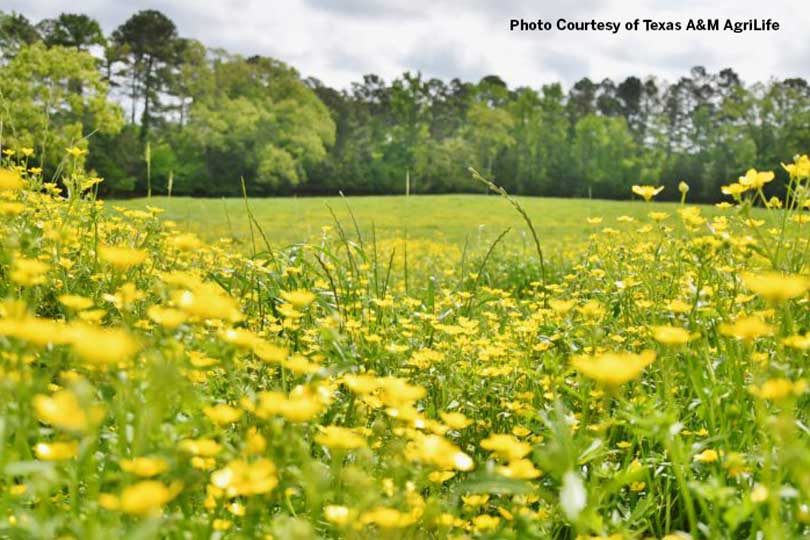By Justin Walker
Communications Specialist
Texas has experienced a bumper crop of weeds this spring.
Hay growers have reported excess weeds in their fields this year, Dr. Vanessa Corriher-Olson, AgriLife Extension forage specialist, said.
Weeds issues, especially in forage-producing areas, began in the latter part of 2018. Drought impacted hay growth, and was followed by unseasonable rains, which prevented farmers from planting ryegrass, winter wheat and other cool-season forages.
Overgrazing of summer pastures allowed seeds to receive sunshine and germinate.
“It was a combination of all those events and conditions that allowed weeds to fill the void,” Corriher-Olson said.
Texas groundsel and similar weeds are already in bloom, she said, which means they are nearing the end of their life cycle. Mowing is the best practice, she said, though pastures should be treated with herbicides next February or March when weeds begin growing again.
If that method is chosen, herbicide product labels should be followed, Corriher-Olson said.
“Most people are just now reacting to what they are seeing in their pastures,” she said. “It’s understood that mowing will spread weed seeds, but it’s necessary to open the canopy for Bermuda grass and Bahiagrass. They just need to remember the issue and be prepared to manage it next season.”
Mowing will allow for summer grasses to continue to grow, she said. Bermuda grass and other summer grasses are starting to emerge, but nighttime temperatures have been inconsistent in northern portions of the state. Summer grasses need nighttime temperatures in the 60s in order to grow.
Cool-season grasses planted in the fall could also help mitigate weeds next season, Corriher-Olson said.
“Everyone thinks the weed problems were worse this year than in the past, but I think the pasture conditions and weather and other factors made them appear to be worse,” she said. “It’s certainly a lesson in management of pastures.”
Farmers don’t have control over the weather, she said, but proper management of pastures can go a long way in combating weed issues.

